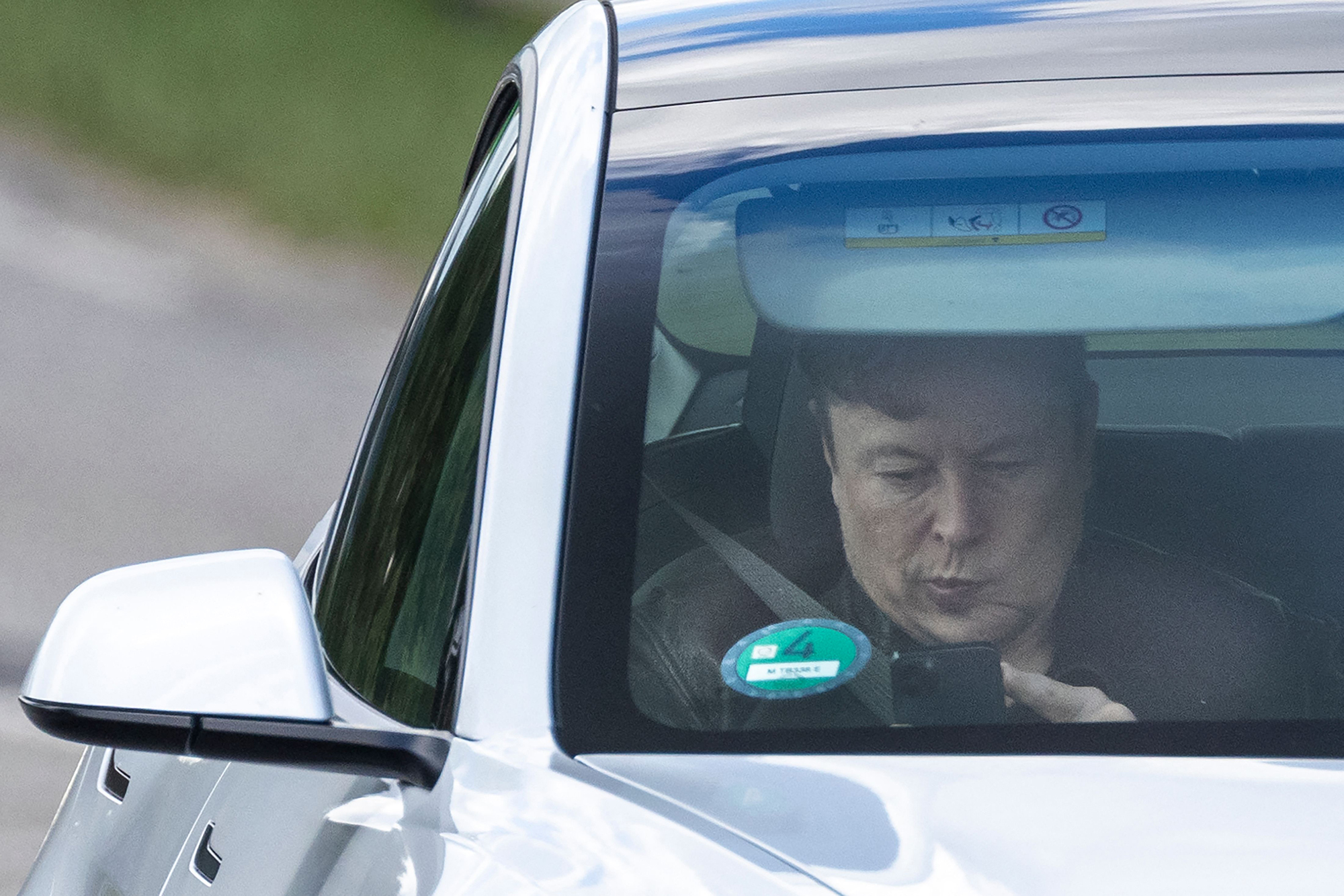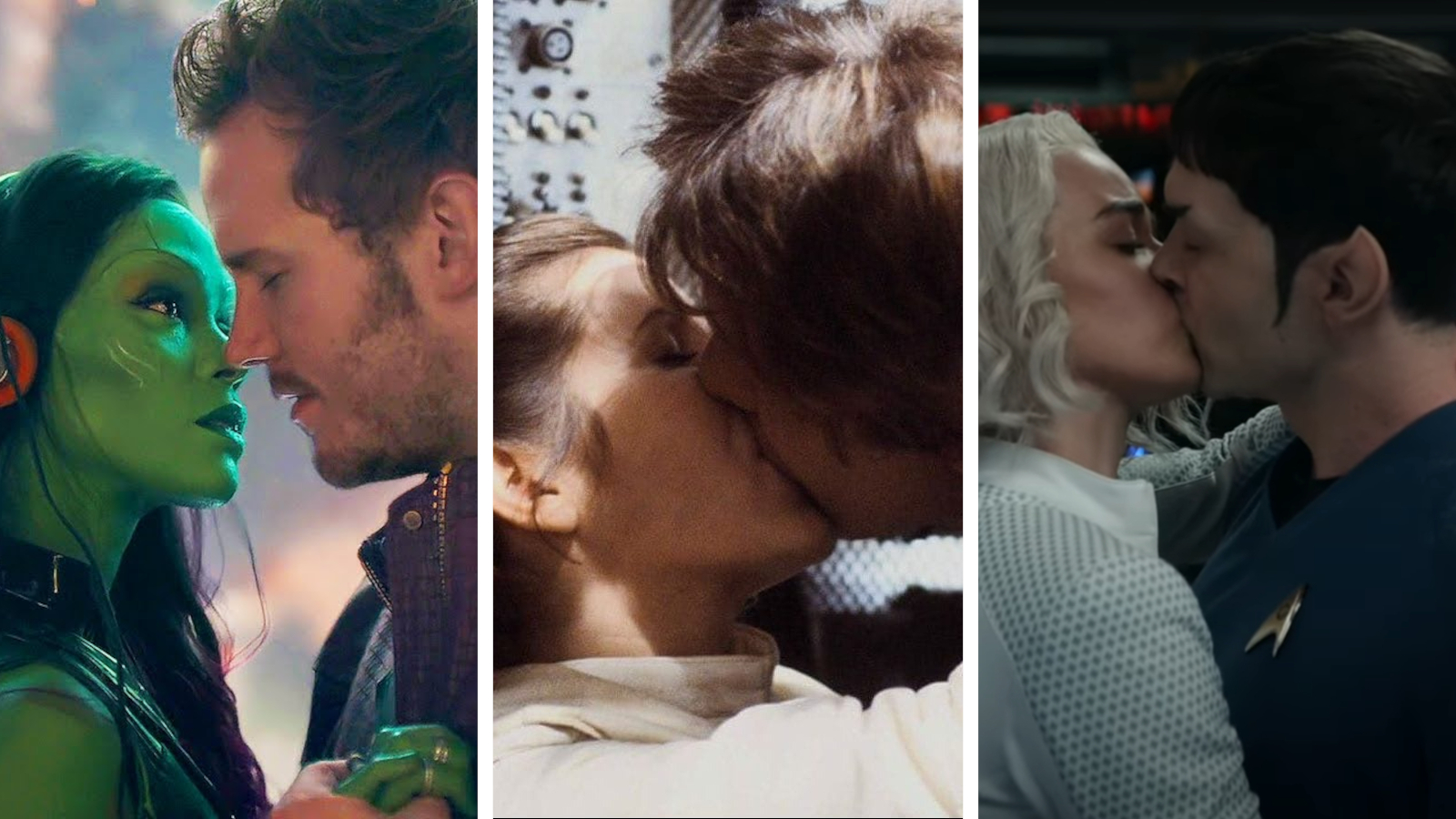Russia's space chief invites SpaceX's Elon Musk over for tea

Breaking space news, the latest updates on rocket launches, skywatching events and more!
You are now subscribed
Your newsletter sign-up was successful
Want to add more newsletters?

Delivered daily
Daily Newsletter
Breaking space news, the latest updates on rocket launches, skywatching events and more!

Once a month
Watch This Space
Sign up to our monthly entertainment newsletter to keep up with all our coverage of the latest sci-fi and space movies, tv shows, games and books.

Once a week
Night Sky This Week
Discover this week's must-see night sky events, moon phases, and stunning astrophotos. Sign up for our skywatching newsletter and explore the universe with us!

Twice a month
Strange New Words
Space.com's Sci-Fi Reader's Club. Read a sci-fi short story every month and join a virtual community of fellow science fiction fans!
Relations between SpaceX's Elon Musk and Russia's space chief Dmitry Rogozin appear to be pivoting from sparring about trampolines to discussing an invitation for tea.
The two aerospace giants had an exchange over Twitter following an interview Rogozin gave for CNN Tuesday (Sept. 7) about the future of the Russian space industry, during which Rogozin praised Musk for him being "an organizer of the space industry and as an inventor, who is not afraid to take risk."
Rogozin, the director-general of Russian space agency Roscosmos, said that millionaires in his own country "prefer to invest more in yachts rather than in spaceships," and expressed admiration for the private United States space industry.
Related: Russian cosmonauts may not fly on SpaceX's Dragon until 2022
Rogozin added he would like to invite Musk to his Russian home to "to be a guest of my family" and discuss "exploring the universe, extraterrestrial life, and how we can use space to preserve life on Earth," he told CNN.
The space chief noted, "I already set the teakettle on heat," prompting Musk to later ask Rogozin on Twitter what the Russian chief likes to drink. Rogozin shared what he called his "grandmother's favorite Indian tea, including a picture of the box. In Russian, the box advertises "Tea: Black Indian" from a brand called "Three Elephants."
Yet relations between the chief of Roscosmos and the founder of SpaceX have not been rosy in recent months. An Ars Technica report from December shared social media photos from Rogozin of Roscosmos engineers working in the rugged Yakutia region of eastern Russia during winter, where temperatures were at a reported minus 61 degrees Fahrenheit (minus 52 degrees Celsius).
Breaking space news, the latest updates on rocket launches, skywatching events and more!
"I wonder if gentle SpaceX is able to work in such conditions?" Rogozin mused on social media, and made reference to SpaceX's launch center for Starship operations in the far more balmy Boca Chica, Texas.
Earlier in 2020, Musk had a snide remark of his own in the wake of his company successfully launching the first Americans to space from U.S. soil since the end of the space shuttle program in 2011, under the NASA commercial crew program.
"The trampoline is working," Musk said in May 2020 of his company's Crew Dragon launch aboard a SpaceX Falcon 9 rocket. The joke was a reference to a 2014 situation in which the United States imposed financial sanctions on several Russian officials, including Rogozin, in the wake of the Russians' internationally condemned invasion of Crimea.
Rogozin's public rebuke in 2014 was this: "After analyzing the sanctions against our space industry, I suggest to the USA to bring their astronauts to the International Space Station using a trampoline," Rogozin said via Twitter at the time. (His post was in Russian; the English translation comes via Google Translate.)
As context, in 2014 the Russians were the sole source for sending Americans to space aboard their Soyuz rocket and spacecraft; the space shuttle was in retirement and commercial crew replacements from SpaceX and Boeing were still being developed. (These American vehicles will take over the bulk of U.S. astronaut launches going forward, lessening the number of times NASA requests seats from Russians and diminishing a lucrative contract for Roscosmos. Boeing's Starliner spacecraft is not ready yet, amidst years of delays.)
Rogozin's relations with NASA have also been rocky, lately. This summer he threatened to pull Russia out of the International Space Station (ISS) program out of further sanctions. The sanctions came in the wake of what U.S. officials described as Russian-led cyberattacks and election interference — a claim Russia has denied, Reuters said in a report at the time.
Some U.S. space observers have also expressed concern about Russia's participation in the ISS after a newly arrived space station module, Nauka, accidentally tilted the ISS in July due to a thruster misfire, causing a spacecraft emergency. The ISS quickly recovered and the crew was in no danger, NASA said at the time.
James Oberg, a U.S. space journalist who frequently reports on Russia, subsequently wrote an op-ed in IEEE Spectrum in early August asking for an independent investigation and adding he has concerns about NASA's safety culture. Around the same time, however, both Russia and NASA emphasized the partnership and safety measures remain strong between the two space agencies.
Follow Elizabeth Howell on Twitter @howellspace. Follow us on Twitter @Spacedotcom and on Facebook.

Elizabeth Howell (she/her), Ph.D., was a staff writer in the spaceflight channel between 2022 and 2024 specializing in Canadian space news. She was contributing writer for Space.com for 10 years from 2012 to 2024. Elizabeth's reporting includes multiple exclusives with the White House, leading world coverage about a lost-and-found space tomato on the International Space Station, witnessing five human spaceflight launches on two continents, flying parabolic, working inside a spacesuit, and participating in a simulated Mars mission. Her latest book, "Why Am I Taller?" (ECW Press, 2022) is co-written with astronaut Dave Williams.

